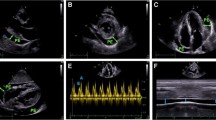Abstract
Post-pericardiotomy syndrome (PPS) occurs in a subgroup of patients who have undergone cardiothoracic surgery and is characterized by fever, pleuritic pain, pleural effusion, and pericardial effusion. It is associated with significant morbidity, and the leading complications include tamponade and constrictive pericarditis. Epidemiologic studies have found that PPS often occurs among younger patients; however, there is a lack of comprehensive risk stratification. It is therefore important to be able to identify patients who are at high risk for developing this disease. The diagnosis is made if patients present with 2 out of the following 5 criteria; fever, pericardial or pleuritic chest pain, pericardial or pleural friction rub, pericardial effusion, and pleural effusion with elevated C-reactive protein (CRP). Pericardial effusion associated with PPS is detected by echocardiography, and cardiac MRI is used for evaluation of pericardial thickening as well as inflammation associated with PPS. These imaging modalities have been invaluable for monitoring the efficacy of treatment in PPS. Aspirin, nonsteroidal anti-inflammatory agents (NSAID), and colchicine are the mainstay of the current treatment for PPS. Although steroids are used for refractory cases of PPS, they are associated with significant side effects when used for long-term treatment of this disease. It is important for future research to focus on identification of clinical, serologic, and genetic markers that may predispose patients to PPS. There is also a need for clinical trials to address the use of targeted immunomodulatory treatment for this disease.


Similar content being viewed by others
References
Papers of particular interest, published recently, have been highlighted as: • Of importance •• Of major importance
Janton OH, Golver RP, O’Neill TJ, Gregory JE, Froid GF. Results of the surgical treatment for mitral stenosis: analysis of 100 cases. Circulation. 1952;6:321–33. This study was the earliest report of PPS in the postoperative setting.
Imazio M, Hoit BD. Post-cardiac injury syndromes: an emerging cause of pericardial diseases. Int J Cardiol. 2013;168:648–52.
Imazio M, Brucato A, Rovere ME, Gandino A, Cemin R, Ferrua S, et al. Contemporary features, risk factors, and prognosis of the postpericardiotomy syndrome. Am J Cardiol. 2011;108:1183–7.
Imazio M, Trinchero R, Brucato A, Ferrazzi P, Rovere ME, Gandino A, et al. COPPS investigators. Colchicine for the Prevention of the Postpericardiotomy Syndrome (COPPS): a multicentre, randomized, double-blind, placebo-controlled trial. Eur Heart J. 2010;31:2749–54.
Imazio M, Brucato A, Ferrazzi P, Pullara A, Adler Y, Barosi A, et al. Colchicine for prevention of postpericardiotomy syndrome and postoperative atrial fibrillation: the COPPS-2 randomized clinical trial. JAMA. 2014;312:1016–23. This study demonstrates that colchicine in the preoperative setting may be useful for prevention of PPS.
Clapp SK, Garson Jr A, Gutgesell HP, Cooley DA, McNamara DG. Postoperative pericardial effusion and its relation to postpericardiotomy syndrome. Pediatrics. 1980;66:585–8.
Horneffer PJ, Miller RH, Pearson TA, Rykiel MF, Reitz BA, Gardner TJ. The effective treatment of postpericardiotomy syndrome after cardiac operations: a randomized placebo-controlled trial. J Thorac Cardiovasc Surg. 1990;100(2):292–6.
Lehto J, Gunn J, Karjalainen P, Airaksinen J, Kiviniemi T. Incidence and risk factors of postpericardiotomy syndrome requiring medical attention: the Finland postpericardiotomy syndrome study. J Thorac Cardiovasc Surg. 2015;15:51–3. This study evaluates serologic markers that may predict risk for PPS.
Finkelstein Y, Shemesh J, Mahlab K, Abramov D, Bar-El Y, Sagie A, et al. Colchicine for the prevention of postpericardiotomy syndrome. Herz. 2002;27:791–4.
Adler Y, Charron P, Imazio M, Badano L, Barón-Esquivias G, Bogaert J, et al. 2015 ESC guidelines for the diagnosis and management of pericardial diseases: The task force for the diagnosis and management of pericardial diseases of the European Society of Cardiology (ESC) endorsed by: the European Association for Cardio-Thoracic Surgery (EACTS). Eur Heart J. 2015;7:2921–64. This is the most recent consensus document that provides a framework for the diagnosis and treatment of PPS.
Snefjella N, Lappegard KT. Development of post-pericardiotomy syndrome is preceded by an increase in pro-inflammatory and a decrease in anti-inflammatory serological markers. J Cardiothorac Surg. 2012;7:72.
Kaminsky ME, Rodan BA, Osborne DR, Chen JT, Sealy WC, Putman CE. Post pericardiotomy syndrome. Am J Roentgenol. 1982;138:503–8.
Jaworska-Wilczynska M, Magalska A, Piwocka K, Szymanski P, Kusmierczyk M, Waski M, et al. Low interleukin-8 level predicts the occurrence of the post pericardiotomy syndrome. PLOS One. 2014;9:1–8.
Miller RH, Horneffer PJ, Gardner TJ, Rykiel MF, Pearson TA. The epidemiology of the postpericardiotomy syndrome: a common complication of cardiac surgery. Am Heart J. 1988;116:1323–9.
Mott AR, Fraser Jr CD, Kusnoor AV, et al. The effect of short-term prophylactic methylprednisolone on the incidence and severity of postpericardiotomy syndrome in children undergoing cardiac surgery with cardiopulmonary bypass. J Am Coll Cardiol. 2001;37:1700–6.
Bunge JJH, van Osch D, Dieleman JM, Jacob KA, Kluin J, van Dijk D. Dexamethasone for the prevention of postpericardiotomy syndrome: a DExamethasone for Cardiac Surgery substudy. Am Heart J. 2014;168:126–31.
Gill PJ, Forbes K, Coe JY. The effect of short-term prophylactic acetylsalicylic acid on the incidence of postpericardiotomy syndrome after surgical closure of atrial septal defects. Pediatr Cardiol. 2009;30:1061–7.
Imazio M, Brucato A, Ferrazzi P, Rovere ME, Gandino A, Cemin R, et al. Colchicine reduces postoperative atrial fibrillation: results of the Colchicine for the Prevention of the Postpericardiotomy Syndrome (COPPS) atrial fibrillation substudy. Circulation. 2011;124:2290–5.
Author information
Authors and Affiliations
Corresponding author
Ethics declarations
Conflict of Interest
Balaji K. Tamarappoo and Allan L. Klein declare that they have no conflict of interest.
Human and Animal Rights and Informed Consent
This article does not contain any studies with human or animal subjects performed by any of the authors.
Additional information
This article is part of the Topical Collection on Pericardial Disease
Rights and permissions
About this article
Cite this article
Tamarappoo, B.K., Klein, A.L. Post-pericardiotomy Syndrome. Curr Cardiol Rep 18, 116 (2016). https://doi.org/10.1007/s11886-016-0791-0
Published:
DOI: https://doi.org/10.1007/s11886-016-0791-0




